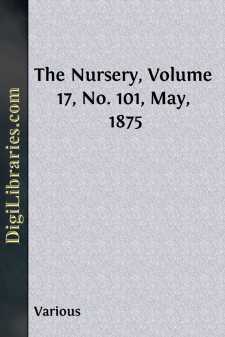Categories
- Antiques & Collectibles 13
- Architecture 36
- Art 48
- Bibles 22
- Biography & Autobiography 816
- Body, Mind & Spirit 145
- Business & Economics 28
- Children's Books 17
- Children's Fiction 14
- Computers 4
- Cooking 94
- Crafts & Hobbies 4
- Drama 346
- Education 58
- Family & Relationships 59
- Fiction 11834
- Foreign Language Study 3
- Games 19
- Gardening 17
- Health & Fitness 34
- History 1378
- House & Home 1
- Humor 147
- Juvenile Fiction 1873
- Juvenile Nonfiction 202
- Language Arts & Disciplines 89
- Law 16
- Literary Collections 686
- Literary Criticism 179
- Mathematics 13
- Medical 41
- Music 40
- Nature 179
- Non-Classifiable 1768
- Performing Arts 7
- Periodicals 1453
- Philosophy 66
- Photography 2
- Poetry 897
- Political Science 203
- Psychology 45
- Reference 154
- Religion 516
- Science 126
- Self-Help 85
- Social Science 82
- Sports & Recreation 34
- Study Aids 3
- Technology & Engineering 59
- Transportation 23
- Travel 463
- True Crime 29
Our website is made possible by displaying online advertisements to our visitors.
Please consider supporting us by disabling your ad blocker.
The Nursery, Volume 17, No. 101, May, 1875
by: Various
Categories:
Description:
Excerpt
THE DOG WHO LOST HIS MASTER
pot was a little dog who had come all the way from Chicago to Boston, in the cars with his master. But, as they were about to take the cars back to their home, they entered a shop near the railroad-station; and there, before Spot could get out to follow his master, a bad boy shut the door, and kept the poor dog a prisoner.
The cars were just going to start. In vain did the master call "Spot, Spot!" In vain did poor Spot bark and whine, and scratch at the door, and plead to be let out of the shop. The bad boy kept him there till just as the bell rang; and then he opened the door, and poor Spot ran—oh, so fast!—but the cars moved faster than he.
Mile after mile poor Spot followed the cars, till they were far out of sight. Then, panting and tired, he stopped by the roadside, and wondered what he should do, without a home, without a master.
He had not rested many minutes, when he saw two little girls coming along the road that crossed the iron track. They were Nelly and Julia, two sisters. Spot thought he would try and make friends with them.
But they were afraid of strange dogs. Julia began to cry; and Nelly said, "Go away, sir; go home, sir: we don't want any thing to do with you, sir."
Spot was sorry to be thus driven off. He stopped, and began to whine in a pleading sort of way, as if saying, "I am a good dog, though a stranger to you. I have lost my master, and I am very hungry. Please let me follow you. I'll be very good. I know tricks that will please you."
The children were not so much afraid when they saw him stop as if to get permission to follow. "He is a good dog, after all," said Nelly: "he would not force his company on us; he wants his dinner. Come on, sir!"
Thus encouraged, Spot ran up, wagging his tail, and showing that he was very glad to find a friend. He barked at other dogs who came too near, and showed that he meant to defend the little girls at all risks.
When they arrived home, they gave him some milk and bread, and then took him into the sitting-room, and played with him. "Beg, sir!" said Nelly; and at once Spot stood upright on his hind-legs, and put out his fore-paws.
Then Julia rolled a ball along the floor; and Spot caught it almost before it left her hand. "Now, die, sir, die!" cried Nelly; and, much to her surprise, Spot lay down on the floor, and acted as if he were dead.
When papa came home, and saw what a good, wise dog Spot was, he told the children they might keep him till they could find the owner.
A week afterwards, they saw at the railroad-station a printed bill offering a reward of thirty dollars for Spot.
He was restored at once to his master, who proved to be a Mr. Walldorf, a German. But the little girls refused the offered reward; for they said they did not deserve it, and Spot had been no trouble to them.
Three weeks passed by, and then there came a box from New York, directed to Nelly and Julia. They opened it: and there were two beautiful French dolls, and two nice large dolls' trunks filled with dolls' dresses and bonnets,—dresses for morning and evening, for opera and ball-room, for the street and the parlor, for riding and walking....












